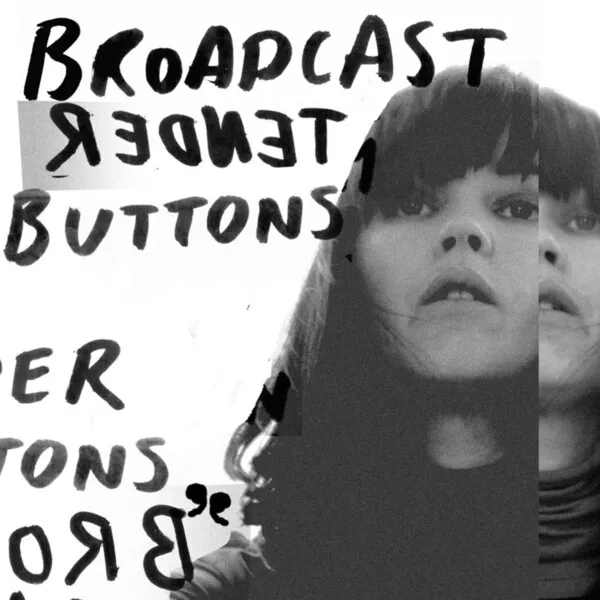
It’s five days after the annual international fiasco that is Eurovision, and a woman in a blue dress is wailing on stage. On a screen behind, 35mm footage of British public information films, are punctuated by silhouettes of a band crackling into life through the darkness. This is the first minute of Broadcast’s set and a curious displacement settles. I don’t know whether to open a bottle of chardonnay or pass round the cheese and pineapple hedgehog.
First things first. Broadcast should not be held up as representative of a Birmingham sound. Broadcast are universal and indicative of themselves. Broadcast are greedy. Broadcast have their slice of idealistic cake and devour it wholeheartedly. Riverside with cold beer, the chatter reels between topics and the band members switch between the guises of spectator and commentator with an alarming fluidity. Fresh from a tour of the US, and with second album HaHa Sound in the offing, Broadcast still appear deliciously unaffected by the press attention. Perhaps it’s only natural. “Who writes about Broadcast?” exclaims Trish at one point. “Not the NME, not Q. Maybe Mojo…” a sarcastic glint rising to the surface betrays her simultaneous mocking of the institutionalised press and an implicit love of the pop aristocracy. Perhaps it’s this non committal attitude that has made Broadcast (Ironically of course) the darlings of the broadsheet review sections. Intelligent versatility doused with a healthy quantity of eau de European sensibility, sees Broadcast as commentators upon the zeitgeist rather than it’s building blocks. As James points out. “Electronic music has been around in one form or another longer than rock and roll”. What’s refreshing about Broadcast is precisely this reluctance to be seen as ‘new’. There’s a nice undercurrent of anti-consumerist leanings to what they do, and if the anti globalisation message isn’t explicit lyrically, it has a strong motivational grasp on the ‘hearts and minds’ of the group itself. “A band can’t be political and be a band. If it’s political it becomes something else – it ceases to be creative”
Woman in a blue dress, is not Trish Keenan. Woman in a blue dress is a fucking Banshee, tying together waves of noise with more noise, slipping under, and erupting over clanging guitars and spindly electronics, staring into the nether distance like a catatonic Sandie Shaw, any presumption of seeing her as a pin up for the electronic generation is made redundant by the sheer force of the sound erupting from the stage. That and the plastique of the unfolding tableau, the darkness and the swirling lights like fire eating up faces and fringes in hungry sweeps, make sex a given rather than a taboo, and therefore it ceases to be a preoccupation. Woman in a blue dress is not PJ Harvey or Ms. Love – that shit is left to Tatu to play with. What’s more captivating than gender politics is how something so delicate, something that should be intellectualised and contained by it’s genre, seems to fill this whole space so pervasively. The icy motorik brilliance of ‘violent playground’ gives way to the shimmering pop puddle of ‘let’s go’ and the Eurovision dream of people being united through music and technology seems possible for an instant. And if such optimism means that a fall must come then Broadcast are nothing if not prepared. “We’re classic martyrs” chuckles Tim in answer to a question about suffering for art. On one side playful, on the other passionate:
Martyrs, Saints, whatever. Broadcast douze points.